It is difficult to know what to look for in a daycare provider, when it comes to your children. As a parent, you want to give your child the best start in life. Carefully choosing a high quality child care center is the first step.
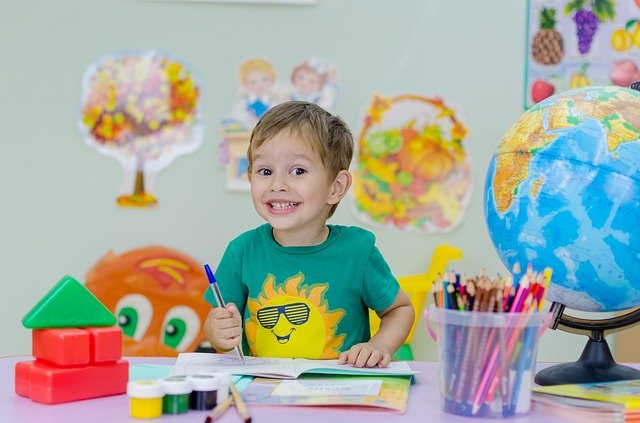
Why Early Learning is Important
Kids need to socialize with other children from a very young age. It allows them to become familiar to social interaction, sharing and good manners. Not only will they learn how to act and behave around others, they will learn valuable reading and writing skills.
Statistics show that kids who don’t attend preschools and head straight into schools have a much harder time learning than the children who did attend preschools.
How Teachers Interact With Children
When choosing a preschool for your child, you need to note everything you see when you are taken around the preschools:
- How the teachers and teachers look after children
- How do they react to children
- How do they treat children
Another important thing to watch out for is the way teachers greet children. Do the teachers come down to kids’ eye levels to address them and talk with them? You can usually tell if a teacher has a genuine love and passion for young toddlers when you first meet them.
You want to find a preschool that shows a love for kids and their development. Teachers should address kids in a grown up manner, but take time to acknowledge each child
Observe Your Surroundings
The most important job of a daycare center is to make sure your child is safe. Be sure to confirm that they are a licensed daycare before any consideration. When you visit the facility it should be clean and free of any safety hazards to your young child.
Note how you feel when you visit. Is it bright and pleasant or depressing and dull? Does it make you happy, do you hear sounds of laughter and fun, or silence? How you feel is important when determining what to look for in a daycare provider.
We invite you to schedule a tour with Premier Academy and see the difference a quality daycare center can make. We offer affordable childcare in the Omaha & Elkhorn area, visit us at premieracademyinc.com.

 When choosing a child care program for your child, the first question you need to ask is whether or not that child care center is licensed. While a license does not guarantee quality, it sets minimum requirements and ensures that a particular center is monitored for compliance.
When choosing a child care program for your child, the first question you need to ask is whether or not that child care center is licensed. While a license does not guarantee quality, it sets minimum requirements and ensures that a particular center is monitored for compliance. Quality Checklist for Choosing Child Care
Quality Checklist for Choosing Child Care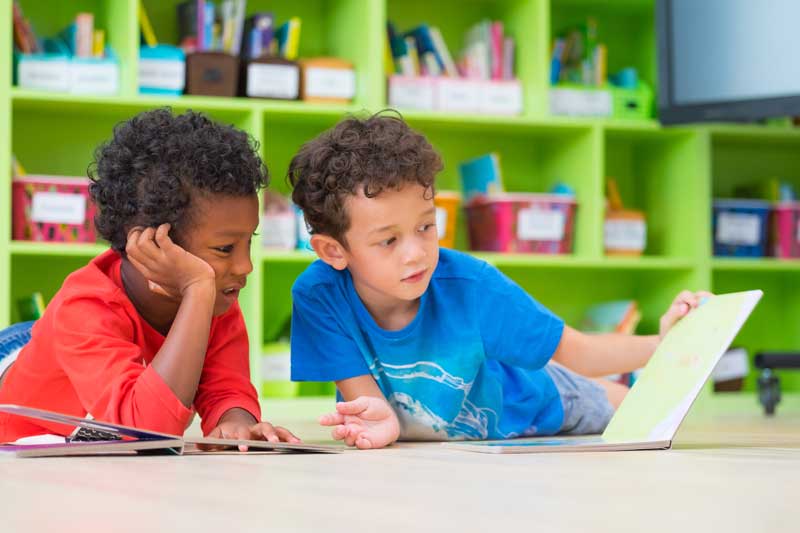 Unfortunately, many parents aren’t exactly sure what to look for in a child care center. If you are enrolling your first or only child, it is easy to be overwhelmed with the choices and standards of care. What follows is a list of questions you should ask when to determine if a child care center will keep your child safe, healthy and happy.
Unfortunately, many parents aren’t exactly sure what to look for in a child care center. If you are enrolling your first or only child, it is easy to be overwhelmed with the choices and standards of care. What follows is a list of questions you should ask when to determine if a child care center will keep your child safe, healthy and happy. Are there benefits to teaching your child baby sign language? Although some studies point to increased intellectual development, the primary benefit of using baby sign language is decreased frustration for both you, your daycare provider, and your baby. Babies can use sign language to communicate their wants and needs long before they begin using words.
Are there benefits to teaching your child baby sign language? Although some studies point to increased intellectual development, the primary benefit of using baby sign language is decreased frustration for both you, your daycare provider, and your baby. Babies can use sign language to communicate their wants and needs long before they begin using words.  Some children are born social butterflies, intuitively understanding the art of making and keeping friends. Other children need a bit more support. Many children are naturally quiet or reserved and may not know how to start a conversation. Others need help in reading social cues, sharing toys, or taking conversational turns.
Some children are born social butterflies, intuitively understanding the art of making and keeping friends. Other children need a bit more support. Many children are naturally quiet or reserved and may not know how to start a conversation. Others need help in reading social cues, sharing toys, or taking conversational turns.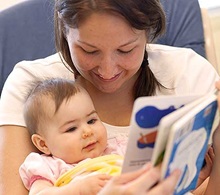 Reading to infants contributes to the development of their growing brains and gives them a good start towards a lifelong love of reading and good literature. When you read to babies, it can also help speech development as they are taking in information and beginning to learn about speech patterns. In addition, synapses connect between your infant’s neurons as you read aloud, positively affecting child development in many areas. Choosing a childcare that understands the importance of reading can set your child on the path to healthy development.
Reading to infants contributes to the development of their growing brains and gives them a good start towards a lifelong love of reading and good literature. When you read to babies, it can also help speech development as they are taking in information and beginning to learn about speech patterns. In addition, synapses connect between your infant’s neurons as you read aloud, positively affecting child development in many areas. Choosing a childcare that understands the importance of reading can set your child on the path to healthy development.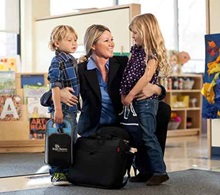 Work-life balance has long been considered a strict separation between work and personal life, but the lines between the two have gradually become blurred, attributable to the technology advancements which allow people to be constantly connected and businesses to be active and accessible at all times without boundaries. With the capabilities of modern technology, work-life integration, a concept in which work and life are intertwined, is emerging and is perceived to be the future of the working world. The new reality is that many fields allow employees to work remotely at least one day of the work week. This, coupled with an ever increasing global workplace, has brought change to the traditional nine to five work day.
Work-life balance has long been considered a strict separation between work and personal life, but the lines between the two have gradually become blurred, attributable to the technology advancements which allow people to be constantly connected and businesses to be active and accessible at all times without boundaries. With the capabilities of modern technology, work-life integration, a concept in which work and life are intertwined, is emerging and is perceived to be the future of the working world. The new reality is that many fields allow employees to work remotely at least one day of the work week. This, coupled with an ever increasing global workplace, has brought change to the traditional nine to five work day.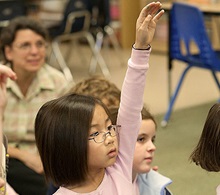 As young children transition to the next classroom at Premier Academy there can be some anxiety for both the child and the parents. Separation anxiety is a normal reaction. Leaving the familiar faces of teachers and entering into a new environment can be difficult for anyone.
As young children transition to the next classroom at Premier Academy there can be some anxiety for both the child and the parents. Separation anxiety is a normal reaction. Leaving the familiar faces of teachers and entering into a new environment can be difficult for anyone.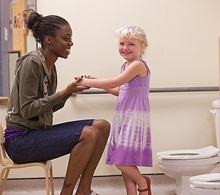 We face many challenges as parents, but toilet learning may feel like one of the more daunting ones. And now that your child seems old enough to begin toilet learning, you also wonder how toilet learning works in child care. Relax. Like every other aspect of child care, you and your child’s teacher will work as partners in the process of toilet learning. Toilet learning while in a child care or daycare setting may be easier than it is at home. At daycare, your toddler sees other children visiting the bathroom, which can create a powerful incentive and example. Teachers are usually very experienced in toilet learning and can offer you a lot of support. Many schools have toddler-sized toilets and sinks, which can make the process much less intimidating. Ask for the teacher’s insights, and try not to compare your child to other children in the center. Soon, your days of changing diapers will be over and your toddler will seem oh-so grown up.
We face many challenges as parents, but toilet learning may feel like one of the more daunting ones. And now that your child seems old enough to begin toilet learning, you also wonder how toilet learning works in child care. Relax. Like every other aspect of child care, you and your child’s teacher will work as partners in the process of toilet learning. Toilet learning while in a child care or daycare setting may be easier than it is at home. At daycare, your toddler sees other children visiting the bathroom, which can create a powerful incentive and example. Teachers are usually very experienced in toilet learning and can offer you a lot of support. Many schools have toddler-sized toilets and sinks, which can make the process much less intimidating. Ask for the teacher’s insights, and try not to compare your child to other children in the center. Soon, your days of changing diapers will be over and your toddler will seem oh-so grown up.